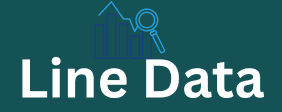In the fast-paced world of sales and networking, timing is everything. Reaching out to prospects at the right hour can significantly impact the success of your calls. Europe, with its diverse cultures and time zones, presents a unique challenge for businesses looking to connect with potential clients. Understanding the best hours to call prospects can boost engagement, enhance relationships, and improve conversion rates.
The Importance of Timing Timing Matters: Best Hours to
In any business interaction, timing affects productivity and receptivity. Calling a prospect during a busy hour or outside of their work schedule can lead to missed opportunities and a lack of engagement. A well-timed call ensures that the prospect is available, attentive, and willing to engage in meaningful conversation.
Best Time Windows for Calling in Europe
Europe spans multiple time zones, from UTC (Coordinated Universal Time) in Portugal and the UK to UTC+3 in Eastern European countries like Greece and Finland. Despite these differences, general work habits across Europe are relatively consistent, making it easier to identify optimal calling hours.
Morning Hours (9 AM – 11 AM)
This is a prime time for prospect calls. Businesses in estonia mobile database Europe typically start their operations between 8 AM and 9 AM, and by 9 AM, employees are settled into their workflow. Calling between 9 AM and 11 AM means catching prospects before their schedules become too hectic. At this time, they are more likely to answer calls and engage with new opportunities.
Lunch Breaks (12 PM – 2 PM)
While some consider lunch hours unsuitable for business calls, these breaks provide an opportunity to catch decision-makers when they are not deeply engaged in tasks. However, it’s advisable to gauge cultural preferences. In countries like Spain and Italy, lunch hours may extend longer, making post-lunch calls more effective.
Afternoon Hours (2 PM – 4 PM)
This window is ideal for follow-ups and introductory calls. By this time, employees have completed most of their daily tasks, allowing them to be material data more responsive to external communication. Avoid calling too late in the afternoon, as people start wrapping up their day.
Late Afternoon (4 PM – 6 PM) Timing Matters: Best Hours to
This period can still be effective for some industries, particularly if targeting professionals who work longer hours. However, it’s crucial to be mindful of work culture; in some European countries, employees leave work earlier, making late calls less effective.
Consider Time Zones and Local Customs
Europe’s time zones require strategic planning. If targeting multiple countries, ensure that calls align with local work hours. Additionally, cultural practices differ across regions—business etiquette, lunch breaks, and working hours vary, so adapting your approach based on specific locations can increase success rates.
Conclusion
Timing your calls strategically can make a why getting feedback from your employees can be the key to your business success significant difference in conversion rates and business relationships. By understanding European work habits, cultural preferences, and time zone differences, you can maximize engagement and improve prospect interactions. Whether in the morning, during lunch breaks, or mid-afternoon, calling at the right time ensures productive conversations and better business outcomes.
